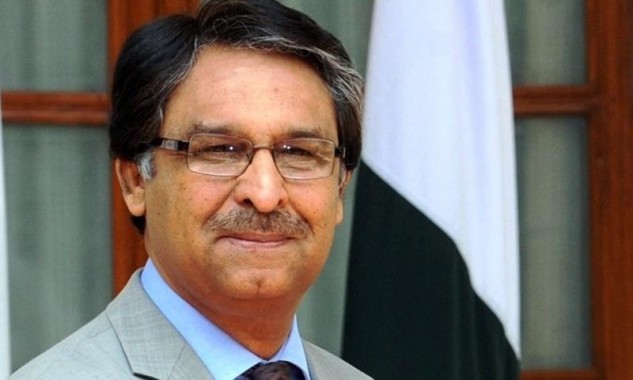
WASHINGTON: The two-day US-Pakistan Strategic Dialogue, which resumes in Islamabad early next week, will focus on two recent developments: a marked improvement in Pakistan’s relations with Afghanistan and a rapid increase in tensions with India.
Talking to Dawn, Ambassador Jalil Abbas Jilani highlighted one of the two developments — improvement in relations with Afghanistan.
Also read: Kerry’s visit
“Yes, there has been a steady progress in relations with Afghanistan since the election of a new government in Kabul,” he said. He acknowledged that recent clashes on India-Pakistan border were “a cause of concern” in both Washington and Islamabad.
But he pointed out that the Strategic Dialogue was a forum for reviewing relations between Pakistan and the United States “so all discussions will have a bilateral context”.
This would be the second ministerial-level meeting since the dialogue resumed in 2013. Three sessions were held in quick succession in 2010 but the dialogue was suspended after the May 2011 US operation in Abbottabad.
US-Pakistan relations improved rapidly after last summer when the Pakistani military launched a major operation against religious militants in North Waziristan. In November, Army Chief Gen Raheel Sharif visited Washington and assured the US military establishment that Zarb-i-Azb was an even-handed operation, targeting all militants.
In Islamabad, the two sides will also review the progress they have made since last year in improving bilateral ties. They will also look into the mechanism for advancing cooperation in various fields. The Strategic Dialogue includes five working groups which will present their reports in Islamabad and the two sides will discuss a new mechanism for promoting ties, based on these reports.
The discussions will cover economy and trade, energy, counter-terrorism, defence, nuclear non-proliferation, education and science and technology. The Pakistani side will also give a briefing on the new national consensus against terrorism, which emerged after the Dec 16 Taliban attack on a school in Peshawar.
Ambassador Jilani described it as ‘a development of great significance,’ which he thinks would go a long way in defeating terrorists.
Both sides will discuss various proposals for maintaining this consensus and for intensifying efforts to rein-in various terrorist groups.
Since the Americans have already ended their combat mission in Afghanistan, transferring security responsibilities to Afghan defence forces, this new development will take a central place in these talks.
US officials want the new Afghan government to succeed in maintaining their control over the country and Washington realises that it is possible only with Pakistan’s cooperation.
The Americans believe that since the departure of the previous Afghan president, Hamid Karzai, Islamabad’s relations with Kabul have improved and they are encouraging both to further expand their cooperation.
The Pakistanis too are seeking Afghan cooperation against those militant groups who have crossed into Afghanistan and are attacking targets in Pakistan from their hideouts.
One of them is Mullah Fazlullah who masterminded the terrorist attack on the Army Public School in Peshawar. Pakistani officials have reasons to believe that Afghan security forces are cooperating with them in defeating terrorists like Fazlullah but they need more action. The Americans, while urging the Pakistani and Afghan militaries to increase their cooperation against the militants, also want the two neighbours to build better economic relations. They argue that economic ties are necessary for promoting better relations.
The US, however, cannot play an equally effective role in promoting India-Pakistan relations as New Delhi rejects mediation. Recently, both State Department and the Pentagon have expressed concern over tensions on the India-Pakistan border but have not offered any suggestion on lessening those tensions.





